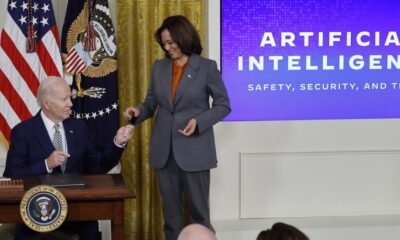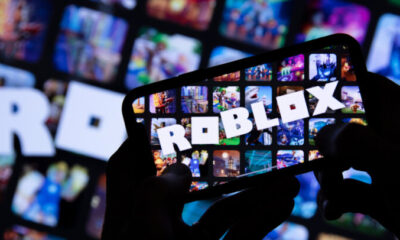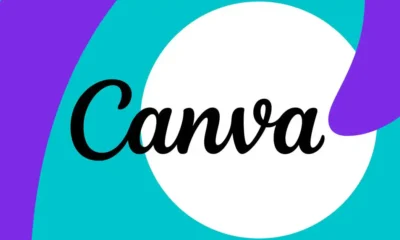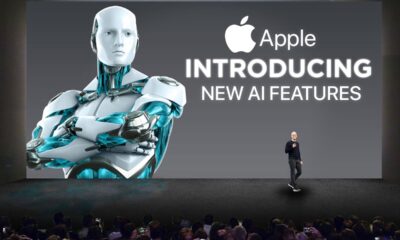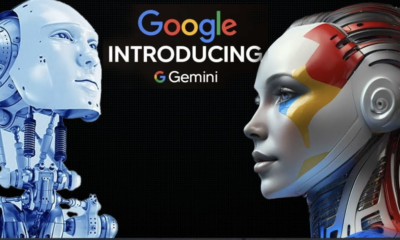Tech
“Humans must not compete with new technologies” – Adekunle Ajayi

For some time now, we have been bombarded with new technologies such as Artificial Intelligence (AI), Virtual Reality (VR), Machine learning, blockchain, and a host of others that are daily disrupting the human way of life. Many have been concerned about what this portend for the average human while many are curious as to the capabilities of these new technologies. We spoke with Adekunle Ajayi, who is one of the leading Web3 engineers, blockchain enthusiasts, and designers for some of the global financial products we are using today. Adekunle is also a mentor at Web3bridge where he trains new developers from Africa and helps them become blockchain developers and champions. He shared on these various technologies, what they mean, and how humans can leverage them rather than see them as threats.
TopNaija: Thanks for the interview, let me get right into it and ask about the word “disruptive technologies”. What exactly does that even mean, and how is it shaking things up in traditional industries?
Adekunle: Disruptive technologies are kind of like what you call game-changers in specific sectors and at different times. They’re innovations that come along and completely change how an industry works. Think about how online shopping disrupted traditional stores. They offered a whole new way to buy stuff that is way more convenient than walking into a physical store. This kind of disruption can happen across sectors, markets, and industries. This is what is labeled disruptive technologies.
TopNaija: What about Artificial intelligence (AI), it’s everywhere! How is AI specifically revolutionizing different industries?
Adekunle: As we can now see around us, AI is having a huge impact across the board. Right now, in manufacturing, robots powered by AI are doing tasks automatically, making things run smoother. In hospitals, AI is analyzing medical scans to help diagnose diseases, even coming up with personalized treatment plans. These are pretty cool stuff and it is only going to get better. AI has even disrupted content creation and digital marketing. However, this does not mean it would replace humans but it would complement human skills and effort just as we are seeing.
TopNaija: Beyond AI, are there any other cool tech things changing traditional industries?
Adekunle: Definitely! The Internet of Things (IoT) is another big one. It connects physical objects to the internet, so they can collect and share data in real time. Imagine, like, delivery trucks with connected devices that track packages and find the best routes. This is already happening in many parts of the world and it will continue to get bigger,
TopNaija: Virtual reality (VR) and augmented reality (AR) have had their fair share of shine, would you say they will impact industries?
Adekunle: Yes, they had their shine, and depending on who you ask, it may appear that it is declining however this is not so. It is gradually coming back fully again just like you can see with Meta and Apple’s new products. These are the technologies of the future. VR and AR create these super immersive experiences, and they’re changing things in education, training, and even design. VR can create realistic simulations for training, and AR can overlay digital information in the real world, like helping with repairs or giving remote assistance. What this means is that very soon, students may no longer need physical laboratories but VR and AR would simulate the perfect lab experience. It is going to be revolutionary.
TopNaija: Many traditional industries rely on tons of paper. How is blockchain technology disrupting that paper trail?
Adekunle: Blockchain offers a secure and transparent way to record and manage data. Imagine a supply chain where every step of a product’s journey is tracked on a blockchain, so everyone knows exactly where it’s been, reducing fraud and making things more trustworthy. Does this mean paper would no longer be needed? Absolutely not. However, we would no longer have to depend on paper for secure record keeping.
Q: With all this automation happening, are some jobs in traditional industries going to disappear?
Adekunle: That is a very important question. Honestly, automation will change the job landscape without a doubt. But here’s the thing, it’s likely to create new opportunities as well. Jobs that require creativity, critical thinking, and social skills are going to be even more valuable. It’ll be more about humans and machines working together. Just like I said before, these techs would complement humans not replace humans. This means though that humans would also need to evolve and be familiar with how to leverage these tools for effectiveness and efficiency. We must not compete with new tech.
Q: How can traditional industries keep up with all this rapid tech change?
Adekunle: Companies need to be constantly innovating and willing to adapt. Investing in training for their workforce is key, so their employees can stay up-to-speed with all the new technologies. New things are springing up daily and it takes an organization that is deliberate about growth to not get left behind.
Q: Are there any downsides or challenges with these emerging technologies?
Adekunle: Of course, with any new tech, there are potential drawbacks. We need to be careful about data privacy and make sure algorithms aren’t biased. Cybersecurity is also a concern as we rely more on technology.
Q: Looking ahead, what emerging technologies are you most excited about in terms of revolutionizing industries?
Adekunle: So many of them are revolutionary however technologies like quantum computing are mind-blowing! They could lead to breakthroughs in medicine, materials science, and even financial modeling. Also advances in bioprinting and synthetic biology could revolutionize healthcare and manufacturing as well. There are a lot however that’s the few I can recollect for now.
Q: Any advice for young people interested in working in a future shaped by these technologies?
Adekunle: I have been drumming this advice into every young person I know. Focus on STEM education – science, technology, engineering, and math. Even for parents, make these the bedrock of learning for your kids because lifelong learning and adaptability are key. STEM would ensure that young people are always up to date and equipped with relevant skills for now and the future. One last thing would be for all of us to stay curious and be prepared to embrace the ever-evolving technological landscape.
Q: Thank you for speaking with me today.
Adekunle: My pleasure.



